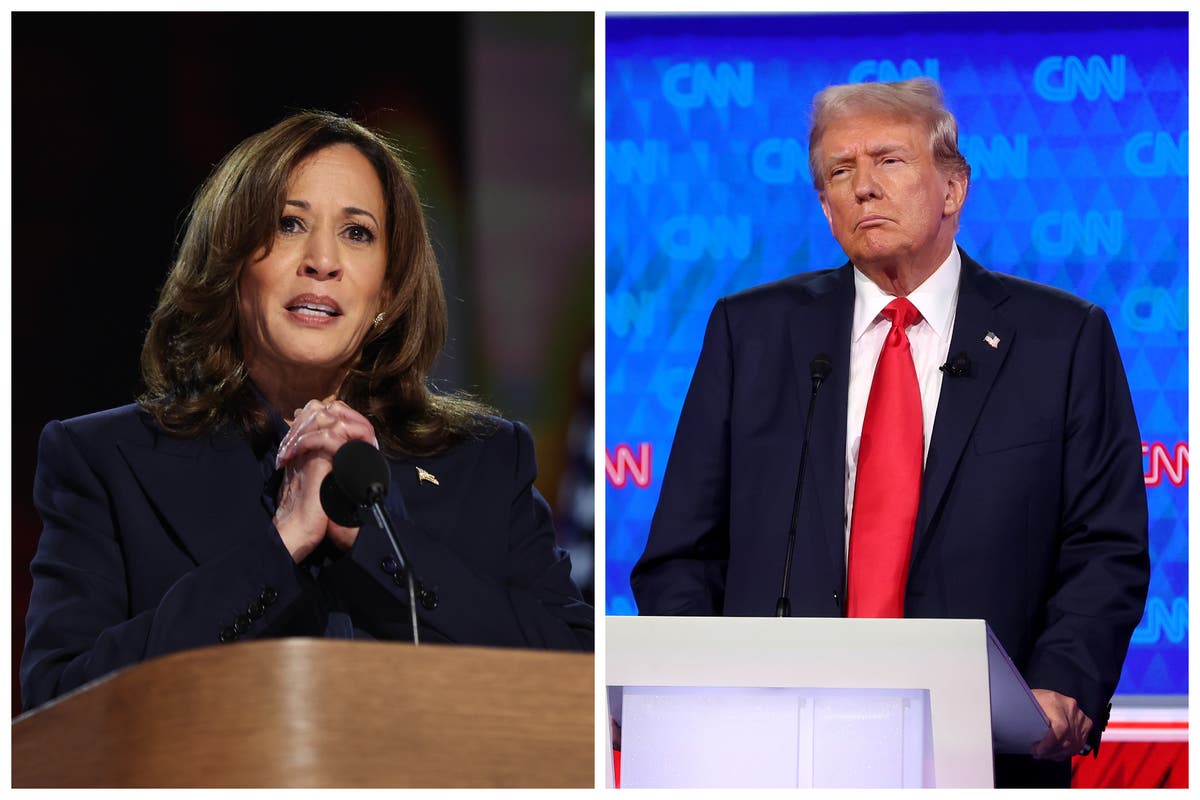Vice President Kamala Harris and former president Donald Trump are set to face off against each other for the first time on the national debate stage on Tuesday and how they perform under the limitations of the rules will be under a microscope.
After several days of back-and-forth, the two candidates finally agreed to comply with the same rules that Trump and President Joe Biden used during the first presidential debate back in June.
That includes muted microphones, no pre-written notes, no live audience, no sitting, and no speaking with campaign staff between commercial breaks.
Though many of the rules are standard for presidential debates, the originally agreed-up regulations could put Harris at a disadvantage since she has a different skill set than President Joe Biden.
Here are the rules for Tuesday’s debate in Philadelphia and who stands to benefit.
Muted mics
Microphones will be live only when the candidate whose turn it is to speak is talking. Otherwise, they will remain muted.
This was a rule that Biden and Trump initially agreed upon. But it’s one that Harris tried to change once she became the Democratic presidential nominee.
Despite Trump saying it “doesn’t matter” to him whether microphones stay on, his team threatened to pull out of the debate if the rules were changed.

Trump is notorious for interrupting people and making snide comments when he is being attacked. During his civil and criminal trials, judges have scolded the former president for speaking out of turn in the courtroom.
Brian Fallon, a top aide for Harris, wrote on X that Trump’s “handlers don’t trust him to spar live”.
Ultimately, Harris agreed to the muted microphone rule but Fallon told ABC News that Harris would be “fundamentally disadvantaged”.
However, a pool of journalists will be permitted in the hall and can report on remarks that are muted for television audiences, according to AP.
No prepared notes or help
Candidates cannot bring pre-written notes or props to the podium and must stand for the entire duration. They will be given a pen, pad of paper and water bottle. Additionally, campaign staff may not interact with either candidate during the two commercial breaks.
Improvising is neither Harris nor Trump’s strong suit but the former president has more experience doing so than Harris.

Trump goes on long-winded, off-topic tangents at rallies, press conferences and during interviews. But he’s good at praising his agenda and policies while tearing down Democrats, although sometimes it results in him making extreme statements.
As a former prosecutor, Harris excels in getting to the point concisely and clearly. But when asked to improvise, she can stumble and say things that are easily misconstrued. In previous interviews, she has been mocked or criticized for misspeaking.
No opening statements
There will be no opening statements during the debate, only closing statements. Trump has won a coin toss and chose the order of statements. Harris will give the first closing statement and Trump will go last.
The former president is at a slight advantage since he can hear all of Harris’s talking points before delivering the final word of the debate.
Moderators will ask the questions
Only the moderators of the debate, David Muir and Linsey Davis, will be permitted to ask questions and there will be no live audience.
This means candidates must answer the question in full, and give a rebuttal in a direct and easy-to-understand way, because it will be a slightly more formal setting than previous debates.
Harris has a slight advantage to the former president in this aspect because she is better at remaining on topic and hitting multiple points more quickly than Trump.
The debate will air on ABC News beginning at 9 p.m. ET on Tuesday.

